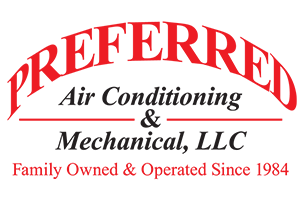Mold: A Common HVAC Complaint That is Easy to Deal With
With the high humidity of Palm Beach Gardens, FL, mold is a common problem in homes and buildings. These microscopic organisms are constantly present in the environment and can grow on any surface. All mold needs to grow is water and a food source, so problems typically occur in areas with high moisture levels. Spores enter the home from the outdoor air and begin growing colonies within one to two days. When left untreated, mold can damage the interior structures and cause mild to serious health problems. The most common areas where colonies accumulate include:
- Bathrooms – With plenty of water sources, bathrooms quickly grow mold in showers, behind toilets and underneath sinks.
- Kitchens – Cooking areas generate moisture from steam, and there are always food sources for mold.
- Laundry Rooms – The dryer vent and washing machine provide enough moisture for mold to thrive.
- Air Conditioning Unit and Ducts – Moisture can build up in your AC system, and the circulating air spreads mold spores quickly throughout the rest of the home.
Mold is impossible to get rid of completely, but it can be controlled to prevent structural damage and health concerns. Mold prevention is easy and begins with proper HVAC maintenance.
Routine HVAC System Inspections
Since mold spores can enter your home’s central air system and circulate throughout the air you breathe, it is essential to have a professional check your HVAC system regularly. Certified technicians check for both mold and moisture to eliminate these pesky organisms and prevent further growth. While inspecting the drains, condensate pans, air handlers, blowers and ducts, the technicians will also recommend necessary HVAC repairs to prevent other problems.
HVAC Equipment Installation
In addition to servicing your current system, you can install new equipment to improve your indoor air quality. HVAC units are designed to control your indoor climate while trapping particles in the air for a purer, healthier environment. To gain an edge in the fight against mold, check out the following equipment.
- Air Purifiers – These units feature advanced technology and HEPA filters that attract and trap mold spores to prevent circulation.
- UV Lights – Strategic placement of UV lamps throughout your AC system helps to kill mold spores before they can reproduce and grow colonies in your home.
- Dehumidifiers – To prevent mold growth, the humidity level in your home should remain below 40 percent. AC systems with built-in dehumidifiers are great solutions for controlling moisture in buildings.
- Ventilators – These HVAC units invite fresh air into the home while removing airborne pollutants like mold. Good ventilation also helps to prevent moisture buildup.
Preferred Air Conditioning & Mechanical, LLC gladly serves residential and commercial clients in Palm Beach Gardens FL. We offer HVAC maintenance, repair and other indoor air quality services to help you control mold. If you want to breathe cleaner air in a healthier environment, contact Preferred Air Conditioning & Mechanical, LLC to take advantage of our HVAC products and services.
You May Also Like

Beat the Chill With a Lower Heating Bill in Vero Beach, FL
While our Florida chill might not compare to northern freezes, the recent cold fronts have homeowners reaching for their thermostats with increasing… Continue Reading Beat the Chill With a Lower Heating Bill in Vero Beach, FL…

Yes, You Must Schedule Heating Maintenance in Fort Pierce, FL
The salty ocean breeze that makes Fort Pierce, FL, living so appealing carries an invisible threat to your heating system. December’s mild… Continue Reading Yes, You Must Schedule Heating Maintenance in Fort Pierce, FL…

Help! I Need a New HVAC Installation for My Commercial Property
The morning air in Boca Raton, FL, feels heavier than usual, carrying that familiar coastal humidity that clings to everything. Inside your… Continue Reading Help! I Need a New HVAC Installation for My Commercial Property…
